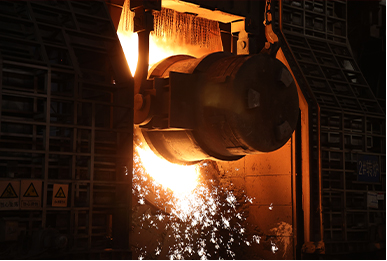ಡಿಸೆ . 25, 2024 12:06 Back to list
Suppliers of Insulation Materials for Hot Water Pipes and Thermal Efficiency Solutions
Selecting the Right Insulation Materials for Hot Water Pipes A Guide for Suppliers
Insulating hot water pipes is crucial for energy efficiency, safety, and maintaining the effective transfer of heat. As suppliers of insulation materials, it’s essential to provide quality products that meet diverse needs across various industries. This article delves into the importance of hot water pipe insulation, the materials available, and considerations to make when selecting the right insulation for your clients.
Importance of Hot Water Pipe Insulation
Proper insulation of hot water pipes offers numerous benefits. First and foremost, it prevents heat loss as water travels through pipes, which can save significant energy costs over time. According to the U.S. Department of Energy, insulating pipes can reduce energy losses by 2% to 4% for every 100 feet of piping. Moreover, insulation helps maintain the temperature of hot water, ensuring comfort and efficiency in heating systems.
Additionally, insulation is essential for safety. Hot surfaces can lead to burns, particularly in residential settings where children or pets may be present. By insulating hot water pipes, suppliers can help create a safer environment by reducing the surface temperature of exposed pipes.
Common Insulation Materials for Hot Water Pipes
There are several materials commonly used for insulating hot water pipes. Below are some prevalent options suppliers should consider
1. Fiberglass Insulation This is one of the most widely used insulation materials due to its excellent thermal resistance and resistance to moisture. Fiberglass is typically available as pre-formed pipe insulation and can be fitted easily around various pipe diameters.
2. Foam Insulation Flexible foam insulation is another popular choice. It is lightweight, easy to install, and provides effective thermal performance. Foam insulation is often available in tubular form, making it suitable for a wide range of applications.
3. Mineral Wool (Rock Wool) Known for its high-temperature resistance, mineral wool is ideal for high-temperature applications. It can withstand temperatures exceeding 1,200°F and is also fire-resistant.
4. Rubber Insulation This material is particularly effective in preventing condensation due to its closed-cell structure. Rubber insulation is pliable and can be used for both hot and cold pipes, making it a versatile choice.
hot water pipe insulation materials suppliers

5. Reflective Foil Insulation This type of insulation uses a reflective barrier to reduce heat transfer. It is particularly effective in preventing radiant heat loss, making it suitable for external pipes exposed to cold environments.
Considerations for Choosing Insulation
When selecting insulation materials for hot water pipes, several factors must be considered
- Temperature Rating Ensure the insulation can handle the maximum temperature of the pipes it will cover. Different materials have varying heat resistance capabilities.
- Installation Environment Consider the specific environment in which the insulation will be applied. For example, areas with high humidity may require moisture-resistant materials.
- Thickness and R-value The thickness of the insulation and its R-value (a measure of thermal resistance) will determine its effectiveness. Ensure that the chosen product meets the energy efficiency standards required by local codes.
- Cost-Effectiveness Evaluate the cost of materials against their performance. Often, higher-quality insulation may provide greater long-term savings on energy bills.
- Sustainability Increasingly, clients are looking for eco-friendly insulation options. Suppliers should consider offering materials that are recyclable or made from sustainable sources.
Conclusion
As suppliers of hot water pipe insulation materials, understanding the diverse options available and their applications is vital. Providing quality insulation not only benefits your customers through energy savings and safety improvements but also positions your business as a leader in the industry. By keeping abreast of market trends, technologies, and innovative materials, you can ensure that your offerings meet the evolving needs of your clients while promoting sustainable practices in insulation.
-
Environmentally Friendly Granule Covering Agent: Sustainable Solutions
NewsAug.27,2025
-
High Purity Graphitized Petroleum Coke & Low Nitrogen Recarburiser
NewsAug.26,2025
-
Fe-C Composite Pellets for BOF: Enhance Efficiency, Lower Steelmaking Costs
NewsAug.25,2025
-
Durable Building Material for Round Wall Exporters | Custom Shapes
NewsAug.24,2025
-
Tundish Dry Vibrator: Boost Steel Casting Performance
NewsAug.23,2025
-
Thermal Insulation Cups Materials Exporters - Quality & Durable Supplies
NewsAug.22,2025
